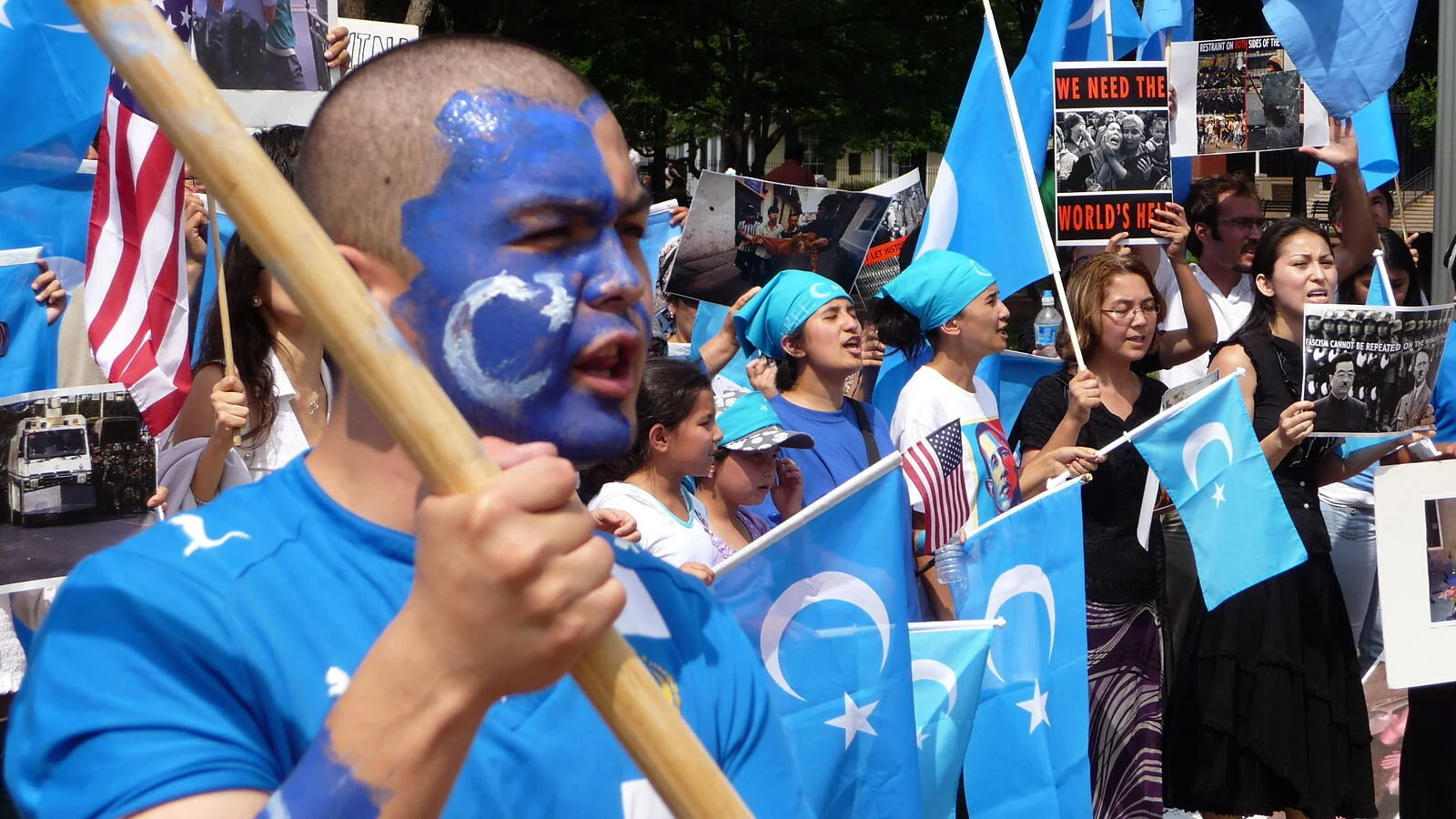Why China’s actions against Uighur Muslims constitute genocide
Anti-China protestors demonstrate outside the White House in 2009, calling on the Obama administration to place greater scrutiny on the Chinese government following Urumqi riots, which were an early instance of violent clash between the Chinese police and Xinxiang Uighurs. Source.
Xinjiang autonomous region in northwestern China is home to the Uighur people, a Muslim Turkish ethinicty with common ancestry and history to many Central Asian ethnic groups. Since around April 2017, China has been operating hundreds of Uighur “re-education” camps, and an estimated one million of the eleven million Uighurs have been detained. China maintains a tight secrecy over what occurs in the camps, but that has not stopped some of the human rights abuses from being made public. The reports are horrific, ranging from food deprivation to torture and sexual abuse.
One survivor from a Uighur internment camp recalled being forced to stand in a fixed position for 12 hours when first detained, and that his treatment drove him to attempt suicide. He, along with the 6,000 other people in his camp were forced to sing chinese political songs and study communist texts; detainees could not speak to each other and had to chant propaganda before meals. There have been reports of deaths from those inside the camps who could not survive the mistreatment.
What can cause somebody to be imprisoned in a re-education camp? Most people in the camps have not been formally charged with a crime. Any expression of religion or culture in Xinjiang is seen as extremist by the Chinese government, even something as simple as growing a long beard or wearing a veil is prohibited. Individuals are constantly monitored, those who travel or have contact with people outside of China are under major suspicion. Some Uighurs have been convicted for using encrypted messaging apps such as WhatsApp.
Outside of the camps, Uighurs still face major discrimination and abuses. China is forcefully sterilizing Uighurs to limit their population, and those who are unable to pay fines for having children could be sent to the internment camps. Children whose parents are sent to the camps often are forced to stay in state-run orphanages. There are also economic challenges, with the farmland Uighurs have historically relied upon being confiscated for redevelopment.
Formal Chinese justification for these camps is that they are to prevent religious extremism and terrorisrm and work to ensure ethnic unity and national security. China has already invested a great deal in domestic security for Xinjiang: the autonomous region currently exists as a surveillance state with technology being used to spy on millions of people. Media reports have described the province as being under a grid-system where cities and villages are split into squares of about five hundred people. Each square has a police station that closely monitors the population, and in some cities, such as western Xinjiang’s Kashgar, police checkpoints are found approximately every one hundred yards, and facial-recognition cameras are widespread.
While every country has a right to protect their national security, there is no excuse for China’s internment camps and oppression of the Uighur people. The United Nations defines genocide as having two dimensions: a “mental element” with the intent to destory a national, religious, ethnic, or cultural group, combined with the “physical aspect” of genocide — killing, causing serious harm, bringing about physical destruction, preventing births, and sepearting children. China’s actions against the Uighurs fit this definition, making their actions in every way — except for international recognition — a genocide.

